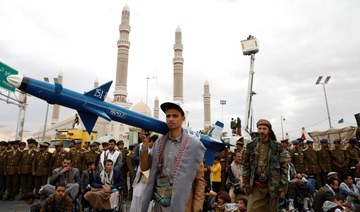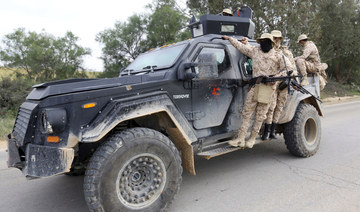DUBAI: The UAE on Friday concluded talks with Mauritius on a Comprehensive Economic Partnership Agreement, the first of its kind between the Emirates and an African country.
The partnership paves the way for increased trade, investment and private-sector cooperation between the countries, the Emirates News Agency reported.
The negotiations in Mauritius concluded, just four months after the first round of talks, with the signing of a joint statement by UAE’s minister of state for foreign trade, Thani Al-Zeyoudi, and the Mauritian minister of foreign affairs, regional integration and international trade, Maneesh Gobin.
The agreement, which builds on almost five decades of ties, including recent developments such as the opening of the Mauritius Economic Development Board’s Dubai office, covers trade in goods and services, and investment opportunities, among other things, officials said.
“Once implemented, it will accelerate robust growth in non-oil bilateral trade between the UAE and Mauritius, which in (the first half of) 2023 stood at $63.1 million, with stronger opportunities in chemicals, metals and petroleum products sectors,” according to the report.
The economy of Mauritius, considered by many analysts as one of the most promising in Africa, posted 8.5 percent growth in gross domestic product in 2022, the highest in 35 years. Its services sector, which accounts for 67 percent of GDP, is viewed as offering vast potential for UAE businesses in the telecommunications, computer and information services, travel, transport, and financial services sectors that are looking to expand into Africa.
“With inbuilt criteria for the identification and facilitation of targeted investment, the deal is also expected to drive (foreign direct investment) into the fintech, healthcare and tourism sectors,” the report added.
Before signing the joint statement, Al-Zeyoudi held talks with Hemraj Ramnial, chairman of the Mauritius Economic Development Board, and Prime Minister Pravind Kumar Jugnauth to discuss opportunities to boost trade and investment. He also met Louis Steven Obeegado, the deputy prime minister, minister of housing and land use planning, and minister of tourism.
“Strategically located in the vital Indian Ocean, and with a growth-oriented economic vision that matches our own, Mauritius is a welcome and valued partner in the UAE’s CEPA program and our efforts to maximize bilateral opportunities borne from open, rules-based trade,” Al-Zeyoudi said.
“With the potential to fully add 1 percent to the Mauritius economy by 2031 and enhance the UAE’s GDP by 1.2 percent in the same period, a UAE-Mauritius CEPA offers considerable benefits for us both — it will do so by not only boosting trade flows, but creating new pathways for strategic investment, private-sector and academic collaboration, and SME (small and medium-sized enterprise) support.”
Gobin said: “It is expected that the CEPA will further improve the business climate and remove any impediments to trade in goods, trade in services and investment flows.
“Furthermore, the first CEPA between the UAE and an African country will surely play a pivotal role toward the establishment of joint ventures, the movement of professionals, and in the strategy of both countries toward their participation in regional value chains. We look forward to working with the UAE to develop and implement such strategies.”
The UAE’s CEPA program is a key pillar of the nation’s growth strategy, which has set targets of 4 trillion dirhams ($1.8 trillion) in total trade value by 2031, and the doubling in size of the country’s wider economy by 2030.
The UAE has signed CEPAs with countries in the Middle East, Southeast Asia, Eastern Europe and Latin America which together encompass almost a quarter of the total global population.





























